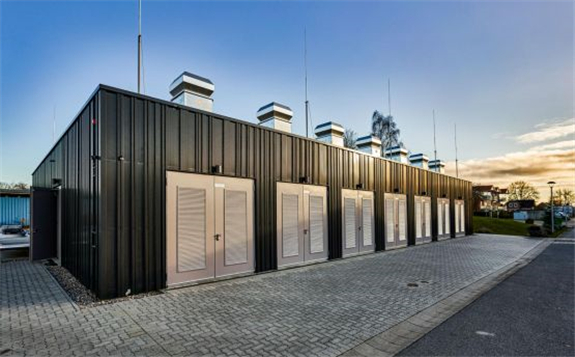Calls have been made across Europe for recognition and support for the vital role that energy storage can play in decarbonisation, reducing air pollution and contributing to a ‘green recovery’, both through legislation and industry sector activity.

German energy storage systems association BVES said a few days ago that the “only way” a Green Deal in its home country “will succeed is through energy storage”, arguing that the technologies, including battery storage, are “key to transforming the energy system”.
“Energy storage, and only energy storage, guarantees a cost-efficient and sustainable security of supply,” a BVES press release said.
“Energy storage can also be a powerful driver of engineering and industrial innovation provided there is a fundamental adjustment of our energy system and its regulation. Energy storage systems can help ensure that our energy system is secure, sustainable and cost-efficient.”
While BVES emphasised the role the German industry could play in developing and deploying energy storage technologies, the association also called for an extensive overhaul of the “whole regulatory framework” for the energy sector. While the association applauded the national effort to invest in renewable energy deployment through the Renewable Energy Sources Act (EEG) and direct funding for research at Federal level, BVES said that mobility, industry and the heating sector need to become integrated to enable a sector coupled energy transition.
Echoing the words of a Guest Blog published on this site earlier this year by BVES policy expert Valeska Gottke, the association called for energy storage to be recognised as an essential “pillar” of the energy transition. Specifically, BVES said Germany needs:
Market regulatory and administrative barriers to the installation of energy storage to be removed, as well as barriers between the electricity, heat and mobility sectors.
A clear regulatory definition of energy storage, where the technology set will be an instrument to supporting demand response, flexible generation and development of the grid. Energy storage should no longer be defined as an end consumer of energy when it is connected to the grid.
‘Double charging’ - where energy storage facility owners and operators have to pay twice to use the grid, once when drawing power from it and again when putting energy into it, is clearly obstructing the business case for energy storage under German grid regulations. BVES calls for these “multiple burdens of taxes, fees and duties” to be eliminated.
To adopt the EU Clean Energy Package within the time frame required under European law.
The BVES statement comes as Germany ponders the sort of stimulus Green Deal it will require to recover economically and socially from the COVID-19 pandemic. Germany will also take over the EU Council Presidency from July 2020 for its six month stint.
Across the continent - and indeed around the world - economic stimulus packages are being put forward and there are growing calls for the recovery to be a green one. During a panel discussion on establishing sustainable battery industry value chains in Europe at the European Commission-hosted Sustainable Energy Week events held in late June, one speaker pointed out that the EU is proposing to spend around €750 billion (US$846 billion) on its post-coronvirus economic recovery plan.
This is three times the GDP of Denmark, Diego Pavia, CEO of InnoEnergy, the European Institute of Innovation’s clean energy accelerator programme, said. Pavia claimed that projects for mining and conversion of lithium already underway in Europe can meet 80% of the needs of the continent’s value chain by 2025.
With the European Commission’s European Battery Alliance committed to going big on supporting the industry ecosystem, Pavia said that if 20 measures proposed to accelerate efforts are enacted, the European battery industry could create a million jobs and about €210 billion (US$237 billion) of new GDP within the next 30 months up to 2022. According to Pavia, this is about the amount that has been proposed by some economists to be required to “reignite the economy after corona”.
That session’s moderator, Michael Lippert, who is chair of industry stakeholder forum Batteries Europe as well as director of innovations and solutions at French battery and storage system company Saft, said that batteries “can be a systemic enabler of a major shift to bring transportation and power to greenhouse gas neutrality”.
“Yet, the European battery industry is lagging behind mainly Asian competition, both in terms of leadership in advanced technologies and in industrial capacity,” Lippert said.
Lippert and the session's other participants also agreed that sector coupling, particularly between electricity and transport, is important for combating climate change, with the transport and power sectors jointly comprising around 40% of global greenhouse gas emissions, according to the findings of a report from the World Economic Forum’s Global Battery Alliance.
That 2019 report stated: “Batteries could enable 30% of the necessary global reductions in carbon emissions enabling decarbonisation in the transport and power sectors,” Lippert said during the session, titled ‘Sustainable Batteries, an ally for the green recovery”.
“Batteries can also provide access to electricity to 600 million people who currently have no access, and create 10 million safe and sustainable jobs around the world”.
Speaking later to Energy-Storage.news, Michael Lippert summarised: “Energy storage in general and batteries in particular will play an important role in Europe’s path towards carbon neutrality both in the transport and energy sectors”.